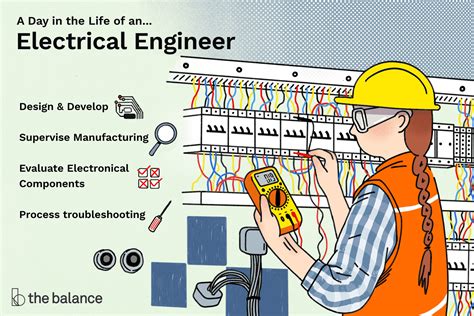Introduction
Electrical engineering is a vast and ever-evolving field that offers a wide range of career opportunities. With the increasing demand for technology in all aspects of our lives, the need for skilled electrical engineers is at an all-time high.

If you’re considering a career in electrical engineering, it’s important to choose the right school to help you succeed. Here’s a comprehensive guide to help you find the best electrical engineering schools for your needs.
What to Look for in an Electrical Engineering School
When choosing an electrical engineering school, there are several key factors to consider:
- Reputation: Look for schools with a strong reputation in electrical engineering. This can be measured by factors such as faculty expertise, research funding, and graduate employment rates.
- Accreditation: Make sure the school is accredited by a reputable organization, such as the Accreditation Board for Engineering and Technology (ABET). This ensures that the school meets high academic standards.
- Curriculum: Review the school’s curriculum to make sure it covers the core topics in electrical engineering, such as circuit theory, electromagnetics, and power systems. Also, consider if the school offers any specialized programs or research opportunities that align with your interests.
- Faculty: The faculty plays a crucial role in your education. Look for schools with experienced and knowledgeable professors who are committed to teaching and mentoring students.
- Research: If you’re interested in pursuing a career in research, consider schools with strong research programs. This will give you access to cutting-edge technology and opportunities to collaborate with industry leaders.
- Career Services: The school’s career services office can help you prepare for job interviews, find internships, and connect with potential employers. Make sure the school has a strong network of industry partners.
- Campus Life: Consider the size, location, and student life of the school. Make sure it’s a place where you feel comfortable and can thrive.
Top Electrical Engineering Schools
According to U.S. News & World Report, the following are the top 10 electrical engineering schools in the United States:
| Rank | School |
|---|---|
| 1 | Stanford University |
| 2 | Massachusetts Institute of Technology (MIT) |
| 3 | University of California, Berkeley |
| 4 | University of Illinois at Urbana-Champaign |
| 5 | Georgia Institute of Technology |
| 6 | Purdue University |
| 7 | University of Michigan |
| 8 | University of Texas at Austin |
| 9 | Harvard University |
| 10 | Cornell University |
Other Notable Electrical Engineering Schools
In addition to the top 10 schools, there are many other excellent electrical engineering schools in the United States and around the world. Here are a few notable schools:
- University of Pennsylvania
- Yale University
- Princeton University
- Carnegie Mellon University
- University of Maryland, College Park
- University of Wisconsin-Madison
- Texas A&M University
- Ohio State University
- University of Minnesota, Twin Cities
Cost and Financial Aid
The cost of attending electrical engineering school can vary depending on the school and your residency status. According to the College Board, the average published tuition and fees for a four-year public college is $9,970 per year for in-state students and $22,690 per year for out-of-state students. For private colleges, the average tuition and fees are $35,830 per year.
There are a variety of financial aid options available to help you pay for college, including scholarships, grants, and loans. It’s important to apply for financial aid early and explore all of your options.
Career Outlook
The job outlook for electrical engineers is expected to be strong in the coming years. According to the U.S. Bureau of Labor Statistics, employment of electrical engineers is projected to grow 5% from 2020 to 2030, which is faster than the average for all occupations.
Electrical engineers are employed in a variety of industries, including manufacturing, construction, and government. They design, develop, and maintain electrical systems for a wide range of products and services, such as power plants, automobiles, and telecommunications networks.
Emerging Trends in Electrical Engineering
Electrical engineering is a field that is constantly evolving. Here are a few emerging trends that are expected to shape the future of the profession:
- Artificial Intelligence (AI): AI is being used to develop new electrical engineering applications, such as self-driving cars and smart grids.
- Renewable Energy: The increasing demand for renewable energy sources, such as solar and wind power, is creating new opportunities for electrical engineers.
- Energy Storage: The development of new energy storage technologies, such as batteries and fuel cells, is essential for the future of the electric grid.
- Electric Vehicles: The rise of electric vehicles is creating new challenges and opportunities for electrical engineers.
- Connectivity: The Internet of Things (IoT) is connecting more and more devices to the internet, which is creating a need for new electrical engineering solutions.
The Future of Electrical Engineering
Electrical engineering is a challenging and rewarding field with a bright future. As the world becomes increasingly electrified, the need for skilled electrical engineers will continue to grow.
If you’re passionate about technology and want to make a difference in the world, electrical engineering could be the perfect career for you.
